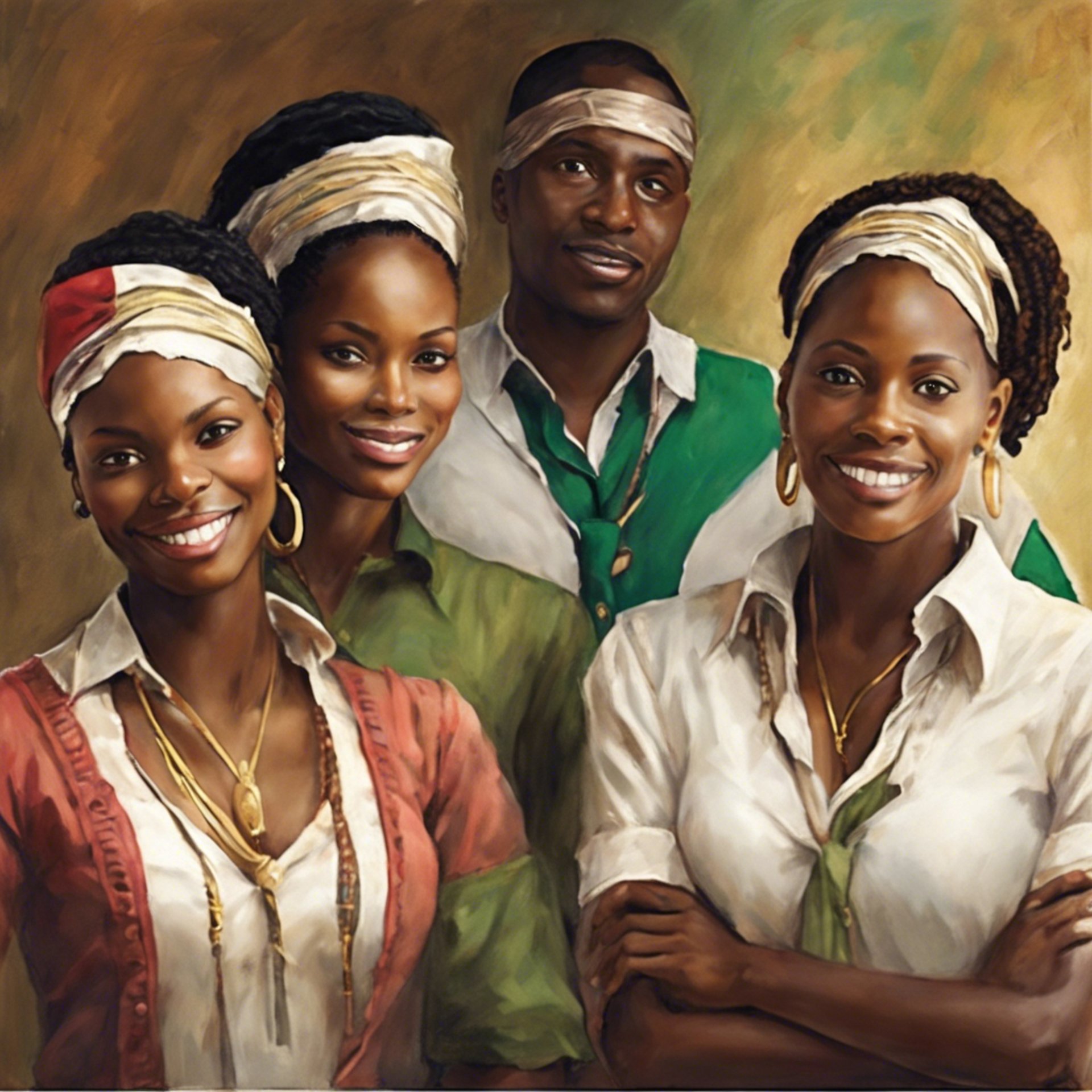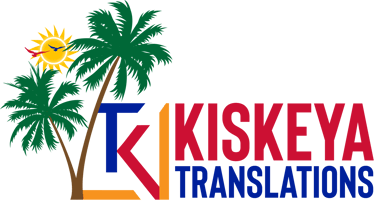
Professional language provider, delivering accurate and reliable interpretation and translation services across New England!

Why Do Many Haitians Deny Haitian Creole as Their Native Language? Understanding the Root Causes of this Complex Social-Linguistic Phenomenon
Kiskeya Translations
9/22/20244 min read


Introduction
Many of our clients at Kiskeya Translations frequently request French-speaking interpreters to assist their patients. However, there have been instances where the assigned interpreter arrives at the clinic and starts speaking French to the patient, only to realize that the patient is Haitian and doesn't speak French at all. Or, how often have you met a Haitian family whose children do not know Creole and heard their parents proudly say to you, "Pitit mwen pa pale Kreyòl (My child doesn't speak Creole)"? Or perhaps you're in a supermarket and overhear someone speaking Haitian Creole on the phone. When you approach the person with a friendly smile to start a conversation, he or she suddenly switches to English (broken or not) and pretends not to understand what you're saying.
I am sure you have had such an experience at least once in your lifetime. Perhaps your instinctive or judging reaction would be, "Ayisyen an pa menm konn pale Fransè oswa pa menm ka pale bon Anglè epi l ap fè entèresan" (The Haitian doesn't even know French or can't even speak English well and is pretending to"). That was the subject of an intriguing family discussion with my wife, Sherly, and my daughter, Emmely, this week. I realized there's a need for a deeper understanding of this captivating topic that is more complex than many of us may realize.
While Haitian Creole is spoken by over 12 million people worldwide, many of its speakers, especially within the Haitian diaspora, deny or downplay their use of the language. The question is: Why do many Haitians deny Haitian Creole as their mother tongue or continue to downplay the use of it in professional and social settings? Understanding this denial requires exploring the historical, social, and cultural factors that influence attitudes toward the language. This captivating blog post delves into the intricate reasons behind this phenomenon and its profound implications for linguistic and social dynamics.
1. Colonial History and Linguistic Prestige
Haitian Creole emerged during the French colonial period when enslaved Africans developed a common language to communicate with each other and with their French colonizers. It is a blend of French vocabulary and African linguistic structures. However, due to its origins among the enslaved population, Haitian Creole has historically been seen as a "lesser" language than French, the language of the elite and the educated.
Conversely, speaking French is often associated with intelligence, sophistication, and social status in Haiti. Many Haitians, particularly those educated or aspiring to climb the social ladder, may feel pressure to downplay their use of Haitian Creole, believing that fluency in French grants them more social capital.
2. Internalized Language Stigma
For many, the denial of speaking Haitian Creole is deeply rooted in internalized Stigma. Haitian Creole has long been marginalized, both within Haiti and among Haitian communities abroad. Despite being the language of the majority, Creole was not recognized as an official language of Haiti until 1987, decades after independence. French had been the only official language recognized by the Haitian constitution for decades. In addition, education and public services in Haiti were mainly conducted in French, reinforcing its status as the language of the educated elite.
Even today, there is an ongoing perception that Haitian Creole is a "broken" or "simplified" version of French, even though it is a full-fledged, complex language with its grammar and vocabulary. This negative perception can make some speakers ashamed of their linguistic heritage, leading to a denial or avoidance of the language, particularly in formal or professional settings.
3. The Influence of Diaspora Communities
In the Haitian diaspora, particularly in countries like the United States, Canada, and France, the pressure to assimilate can also contribute to the denial of speaking Haitian Creole. Many Haitian immigrants or second-generation Haitians grow up in environments where English or French is dominant, and they may feel that identifying too strongly with Haitian Creole sets them apart or makes them seem less integrated into their new societies.
Additionally, in some diaspora communities, there is a hierarchy of languages where speaking French, English, and now Spanish or Portuguese (because of the flow of Haitian asylum seekers from Latin America or Brazil) is still considered more prestigious than speaking Creole. This can create a situation where younger generations, who may be fluent in Haitian Creole, prefer to present themselves as French-speaking or English-speaking rather than Creole speakers.
4. Misunderstanding Haitian Creole's Linguistic Status
Another reason for denying Haitian Creole is the broader global misunderstanding of Creole languages in general. Creole languages are often looked down on as "simplified" or "broken" versions of the dominant languages, undermining their legitimacy in the eyes of the global community. There is a widespread misconception that Haitian Creole is just a dialect or a simplified version of French. Haiti has long existed in a state of diglossia, where French is considered the "high" language used in formal settings, education, and government. At the same time, Haitian Creole is often seen as the "low" language for everyday communication. Many Haitian Creole speakers may reject their language out of fear that others will not recognize it as a full-fledged language with its grammar, syntax, and vocabulary.
This lack of recognition can affect the speaker's sense of pride in their linguistic identity, leading them to downplay or dismiss their fluency in Haitian Creole in favor of more widely accepted languages.
5. The Rise of Creole Pride
Despite these challenges, there is a growing movement towards embracing Haitian Creole, particularly among younger generations and within academic circles. Many scholars, artists, and activists are working to reclaim and celebrate Creole as a Haitian identity and cultural symbol. The language is increasingly used in literature, music, and media, and there are more efforts to promote bilingual education in both Creole and French in Haiti.
The shift in attitude is slowly dismantling the long-held stigmas associated with Haitian Creole. There is also a stronger push for its acceptance in professional and international settings, allowing speakers to take pride in their linguistic heritage without denying or downplaying their language use.
Conclusion
The denial of Haitian Creole as a native language is deeply rooted in Haiti's colonial past, social hierarchies, and external pressures to assimilate. However, as more Haitians embrace their cultural identity and the world recognizes the richness of Haitian Creole, the Stigma surrounding the language is gradually fading. This shift encourages a deeper understanding and appreciation of the language and pride in speaking it. Haitian Creole is more than just a means of communication; it is a cornerstone of Haitian identity, resilience, and history.
I hope my fellow Haitians will embrace this cultural richness heritage and pass it on to their children. Next time you meet a compatriot who denies its Haitian Creole roots, try to understand rather than judge. It's deeper than you think.
Click on the YouTube link below to enjoy the song "Pale Kreyòl" with a powerful message, featuring Tony Polomack.
Bridging Language Barriers for Communities across New England!
A Fully Insured Company!
